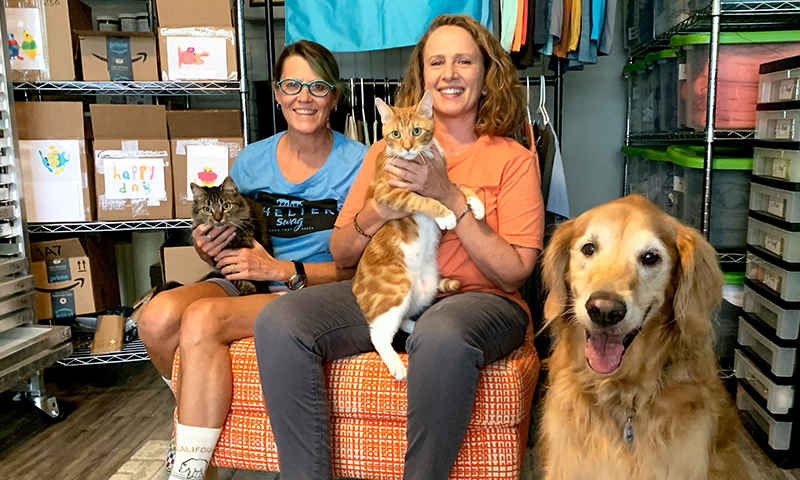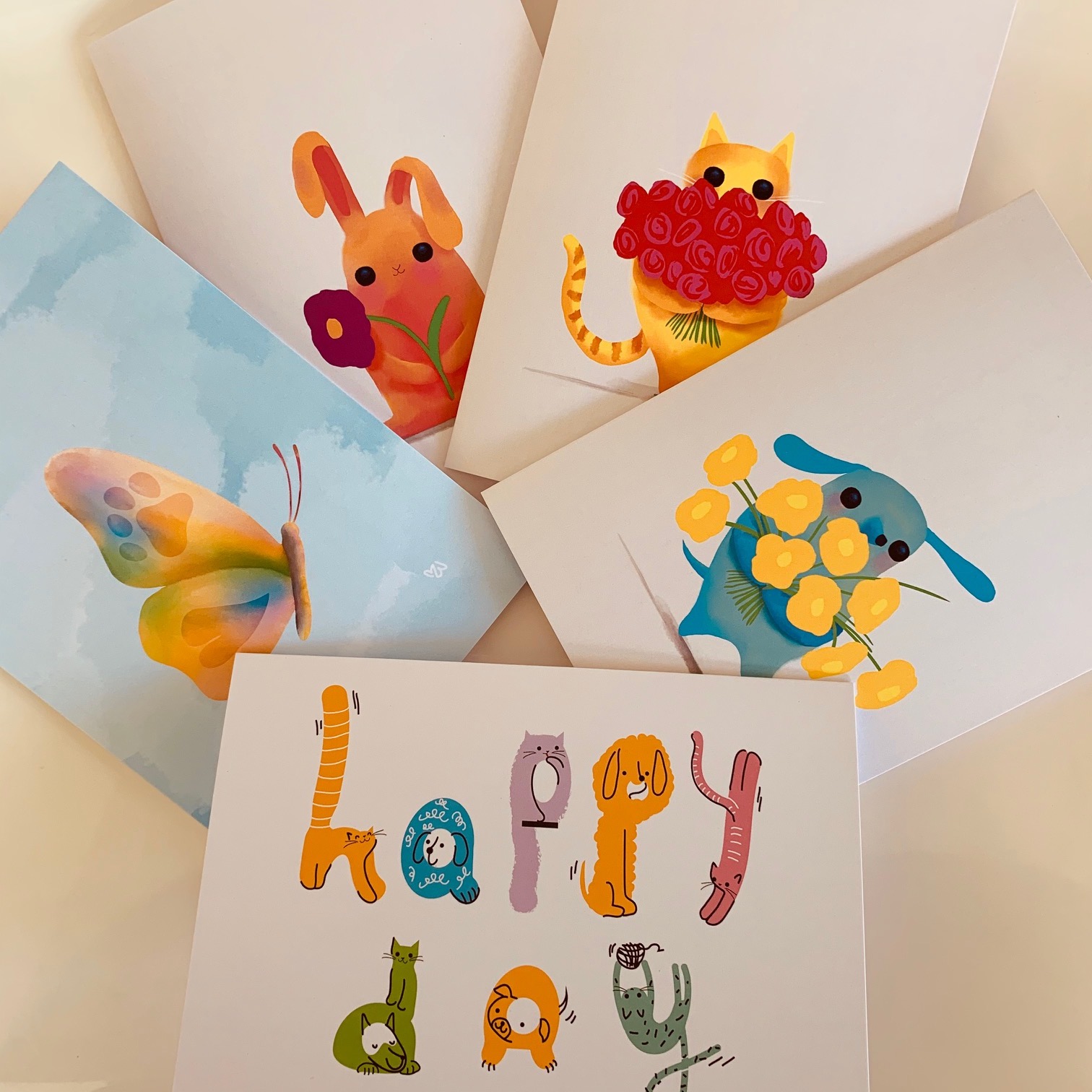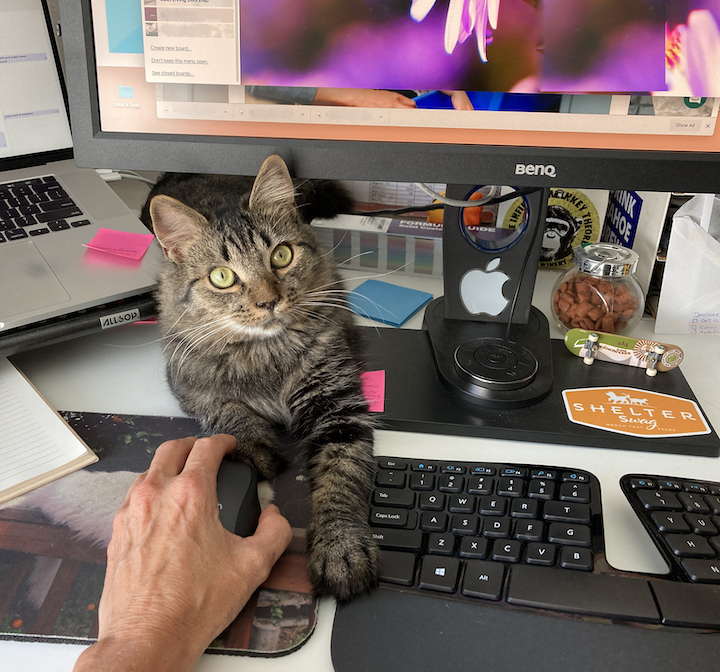Cause For Paws

Sharie Lesniak, above left, and Linda Bak share the same vision: to help as many animals as possible. Having both volunteered and worked for different animal welfare efforts, which is also how they first crossed paths, the pair has an acute awareness of these groups’ specific needs and challenges. In search of something more meaningful from their careers at the time—Lesniak worked in advertising and Bak was a strategy consultant and securities broker—they used their combined expertise and passion for animals and founded Shelter Swag, a St. Petersburg, Florida-based distributorship with a mission to help animal nonprofits promote themselves. Their motto, "We Put The 'Wag' In Swag," says it all.
“At many nonprofits, they believe that spending any money on marketing just isn’t just doable, whether it’s because of a lack of resources or time,” says Bak. “Our goal is to help our nonprofit clients understand the importance of promoting themselves in a strategic way that leads to more awareness and financial support, which, in turn, can help them fulfill their mission—and ultimately save more animals.”
Shelter Swag was born out of need—a need for curated marketing solutions for animal rescue operations, and a need for relevant, branded product. When Bak worked as a full-time fundraiser at animal nonprofits, like the Sacramento SPCA and RedRover, she recalls constantly being on the lookout for ways to reach and “touch” donors. She also remembers it being difficult to find animal-themed cards that were appropriate and reasonably priced, in which she could handwrite personalized notes, and with a busy communications and marketing department, there wasn’t ample time for the team to design its own greeting cards. So naturally, one of the first products Shelter Swag offered was its greeting card line that shelters can customize with their own message and branding to use throughout the year, or they can opt to purchase blank cards in smaller quantities.


Above, left, are items from Shelter Swag's greeting card line, which is made specially for animal groups to use in their marketing campaigns and communications with clients. Above, right, is one of Shelter Swag's "employees," Lil' Roo, the newest addition to the company.
Along with greeting cards, Shelter Swag also started offering custom t-shirts, adding unique designs to draw attention to a shelter. “A t-shirt, for example, gets seen an average of 3,400 times in its lifetime,” says Bak. “It’s some of the cheapest advertising there is. We’ve been to so many events where the shirts nonprofits give out as a ‘thanks for participating’ are low quality and don’t reflect well on the organization, so the shirt ends up being a rag rather than a way to promote the nonprofit. Our goal is to make sure our clients understand the importance of buying quality shirts with good designs that their supporters actually want to wear again and again, and really get some ROI. Our tagline, ‘Saving Animals One Good Design at a Time’ is based on that concept.” Shelter Swag also exclusively sources its t-shirts from factories that are certified by Worldwide Responsible Accredited Production, a factory-based certification program for manufacturers of clothing, footwear and sewn products that ensures factories are following its 12 principles of fair labor and environmental practices, including prohibition of forced and child labor, and discrimination. And t-shirts decorated with silk screening are done so using only water-based inks, rather than plastisol ink, which contains plastic with toxins like phthalates that are harmful to the environment.
As Shelter Swag grew, Bak and Lesniak felt it only made sense to broaden the range of branded products they offered. “Rather than being a one- or two-trick pony, we want Shelter Swag to help animal nonprofits with whatever they need, and promotional items can help achieve the same goal of raising visibility in the community. But we also want to balance all that and not overwhelm. Sometimes too many choices are just as bad as too few.” During the pandemic, Shelter Swag helped with producing virtual fundraisers, providing its clients with designs for t-shirts and other branded goods, along with production and fulfillment. “The fact that Sharie and I understand how animal nonprofits work, really matters. Our biggest value-add is coaching them on how to help themselves,” says Bak. “Our long-term goal is to be the one-stop shop for animal welfare groups, including farm and animal sanctuaries and cause-based animal groups, across the country. There’s power in numbers, and if we can help more nonprofits elevate their presence in their communities, then we can help save more animals.”
The distributorship also uses branded goods to give back to shelters in need. Shelter Swag developed its Hygge Bank, named after Hygge, one of Bak and Lesniak’s cats, and whose name is the Danish word for feelings of coziness, comfort and general wellbeing. Certain items that Shelter Swag sells in its retail line are listed as “BOGO” (buy-one-give-one), and when a customer purchases one of these shirts, Bak and Lesniak donate a shirt to the Hygge Bank. When the Hygge Bank accumulates enough shirts, they are donated to a small-budget shelter in need of volunteer t-shirts. “For all the large organizations, there are a ton of scrappy, grassroots rescues that are all volunteer-based, and really need help wherever they can get it,” says Bak. “This is one way we can use our resources to make a difference for them, and pass along some hygge.”
For such an animal-friendly company, it’s no surprise that Bak and Lesniak share their office space, not only with Hygge, the “quality control inspector”—“We let our customers know that if there’s an orange hair on one of their items, it means Hygge did a thorough inspection,” says Bak—but also with Bradley, a 13-year-old Golden Retriever and the “customer service manager,” who’s “always nearby to greet you with a smile,” and Lil’ Roo, the youngest and newest feline, and “intern,” who’s “learning the ropes and spilling our coffee.”
–––––––––––––––––––––––––––––––––––––––––––––––––––––––––––
Danielle Renda is associate editor of PPB.

